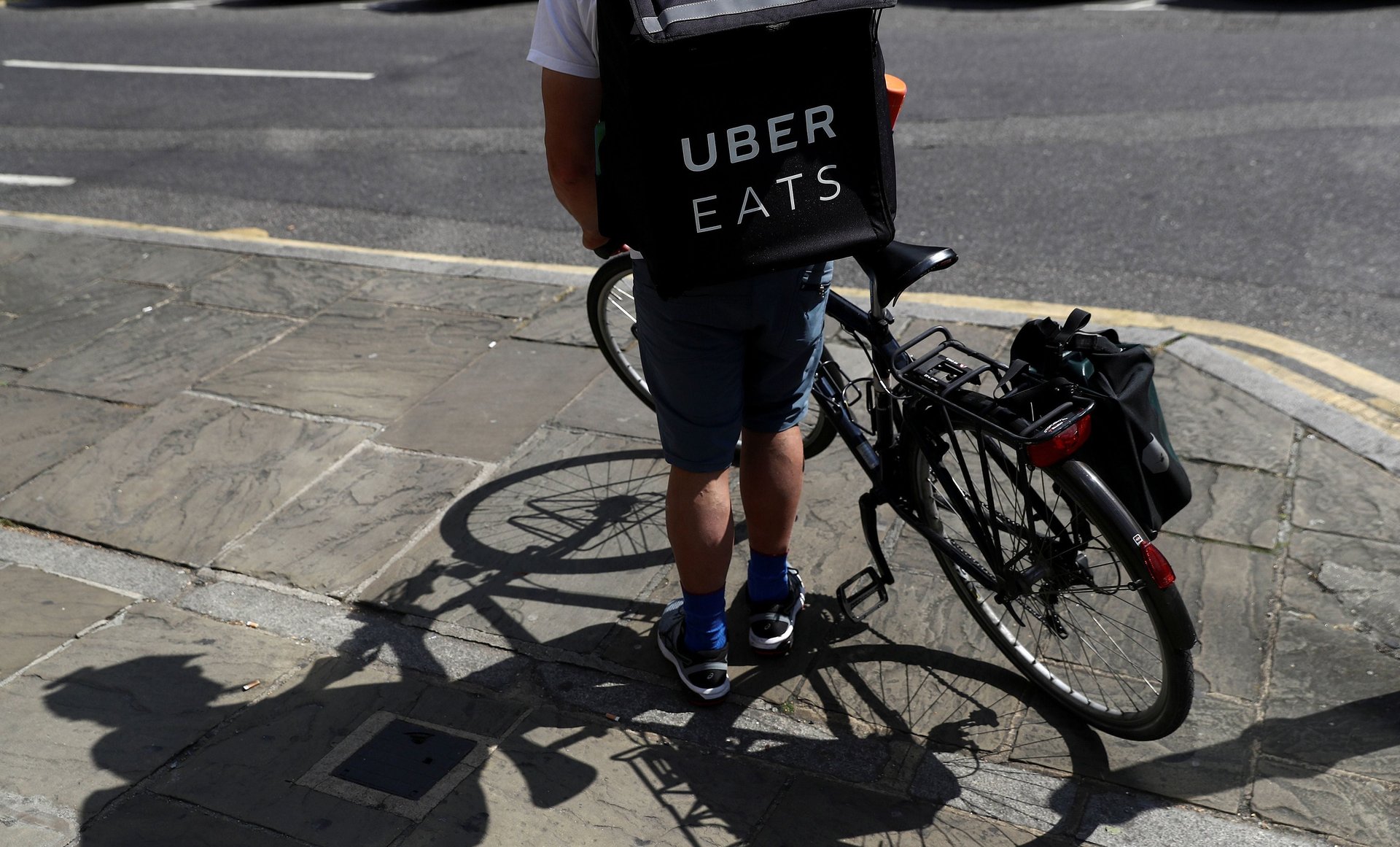DoorDash has overtaken Uber Eats in US online food delivery
San Francisco-based startup DoorDash has emerged as the dark horse in the food delivery race.


San Francisco-based startup DoorDash has emerged as the dark horse in the food delivery race.
As Postmates and Uber prepare to go public, DoorDash is raising another $500 million (paywall) at a valuation of between $6 billion and $7 billion, the Wall Street Journal reported. That would add to the nearly $1 billion the company has raised to date, most recently with a $250 million investment led by DST Global and Coatue Management at a $4 billion valuation in August 2018.
DoorDash will likely use that funding to grow its come-from-behind lead among food delivery startups. In November 2018, DoorDash overtook Uber Eats in share of food delivery sales in the US, according to anonymized credit card transaction data that analytics company Second Measure provided Quartz. That made DoorDash second only to Grubhub, parent company of Seamless and Eat24, in terms of US market share for online food delivery, according to Second Measure’s data. DoorDash said it is a client of Second Measure.
Food delivery isn’t exactly an innovation, but that hasn’t stopped the sector from attracting billions of dollars in financing from venture capitalists who think the food space could still yield a company the size of Uber or Airbnb. Investors are betting on trends like the decline of at-home cooking and popularity of on-demand, app-based services to make online food delivery a mainstay of how the world eats. While many of the early entrants in the food delivery race have sold or gone out of business, companies like DoorDash and Uber Eats are still jockeying to see who comes out on top.
DoorDash was founded in 2013 with a model similar to competitor Postmates. Both companies hire workers as independent contractors to deliver orders on demand—usually food from restaurants, though Postmates also delivers from groceries and corner stores—in exchange for steep fees. Customers ordering from Postmates or DoorDash typically pay a delivery fee and a separate fee, plus whatever tip they leave for the delivery worker. Such fees can easily add up, making the final price of an order much more than the cost of its items (let us not forget the cautionary tale of Shawn Cook). Each company also offers a subscription service—Postmates Unlimited and DashPass—that costs $9.99 a month and waives or reduces fees on orders of $15 or more from restaurants it has a relationship with.
DoorDash’s backers include powerful Japanese investor Softbank, which led its $535 million series D funding round in March 2018 and invested again in August. Softbank is also the largest shareholder in Uber, giving it a vested interest in the success of Eats, Uber’s food delivery business. Uber has invested heavily in Eats over the past few years and pitched it as a pillar of the business ahead of a likely public offering this year, making it even more notable that DoorDash has overtaken it in terms of market share. Second Measure estimated DoorDash held around 25% of US online food delivery relative to major competitors as of December 2018, a few percentage points better than Uber Eats and up from around 15% in the first half of the year.
Becky Sosnov, a DoorDash spokeswoman, told Quartz the company attributes its rising market share to launching DashPass in August 2018, building out its roster of partner restaurants, and quintupling its delivery footprint to 3,000 US cities from 600 over the course of 2018. “We reach more cities, and with higher quality, than any other service,” Sosnov said in an email, noting that DoorDash’s average delivery time is 35 minutes. Uber Eats operates in more than 500 cities across the US, South America, Europe, Asia, Africa, and Australia and New Zealand.
DoorDash was one of several on-demand companies to recently come under fire for using customer tips to subsidize worker wages. Because DoorDash couriers are hired as contractors, they aren’t eligible for a minimum wage or other labor protections afforded to traditional employees.